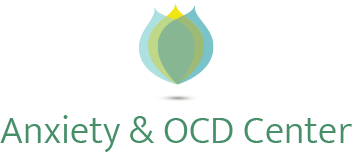ASSESSMENT PROGRAMS
At the Anxiety & OCD Center
PSYCHO-EDUCATIONAL TESTING
In cases in which psycho-educational assessment is required for student admission to a private school, the Anxiety and OCD Center works with the school on behalf of the family to fulfill the requirement.
Psycho-educational testing also provides evidence of the need for special accommodations to be made by the school to help level the playing field so that that a child with a psychiatric disorder functions better and isn’t operating at a disadvantage relative to students without an anxiety disorder.
Accommodations provided by a school are meant to level the playing field so that that a child functions better and isn’t operating at a disadvantage relative to students without an anxiety disorder.
In some instances, schools can provide accommodations informally with just a letter from a psychologist. In most cases, though, schools require formal documentation, such as psycho-educational testing assessment, in order to provide accommodations.
Free and appropriate education in the least restrictive environment is protected under two relevant federal laws: The Individuals with Disabilities Education Act (IDEA) and Section 504 of the Rehabilitation Act of 1973 (504 Plan).
IDEA is a special education provision that requires testing by a school psychologist. Once identified as having an impairment or disability (usually termed a Social Emotional Disturbance (SED) or Other Health Impairment (OHI)), a child is eligible for special education support. An Individualized Education Plan (IEP) is then developed based on testing results, along with input from teachers, parents, and treating psychologists. Along with the accommodations discussed above, an IEP sets very specific goals for a child to achieve. The goals of the IEP must specify measurable objectives, which are reviewed annually.
If a child does not qualify for an IEP, a 504 plan of accommodations (called a ‘504’) might be implemented. Less formal than an IEP, a 504 is simply a plan of accommodations to be made by the school for the child. A typical 504 does not include specific measurable objectives for a child to achieve.
To implement a 504, a school usually requires a letter documenting a diagnosis from a treating psychologist. Since a 504 does not require formal testing, it can be put into place more quickly than an IEP.
Typical accommodations that children with anxiety and related disorders receive address:
- Travel to and from school
- Separation from parents in the morning
- Assistance with following directions and with organization of class notes and school schedule
- Classroom seating arrangements
- Class participation, including not being called on to answer questions
- Note taking, including whether class notes can be provided for the child
- The need for breaks, including breaks to move around and passes granting permission to be excused from class
- Unstructured activities such as lunch, recess, and waiting for the bus
- Assemblies, field trips, fire drills, and other changes in routine
- Homework modifications and assistance
- Testing conditions, such as taking tests on an individualized basis and time limit extensions on tests, quizzes, projects, papers, and other assessments
PSYCHOLOGICAL TESTING
The Anxiety and OCD Center provides psychological testing to children, adolescents, and adults who seek diagnoses for psychiatric disorders as well as evaluation of learning problems and relative strengths and weaknesses in brain functioning. Such assessments help treatment provider, educational institutions, testing boards, and clients develop treatment planning and strategies to compensate.
Standardized tests and behavioral observation are used to diagnose disorders and to define strengths and weaknesses in brain functioning.
Commonly assessed psychiatric disorders and areas of brain functioning include:
- Attention deficit hyperactivity disorder (ADHD)
- Autism Spectrum Disorder
- Evaluation of learning problems
- Relative strengths and weaknesses in brain functioning
- Intellectual functioning
- Academic achievement
- Language and reading skills
- Sensory integration development
- Attention and concentration
- Learning and memory
- Processing speed
- Social skills development
- Emotional and personality assessment

